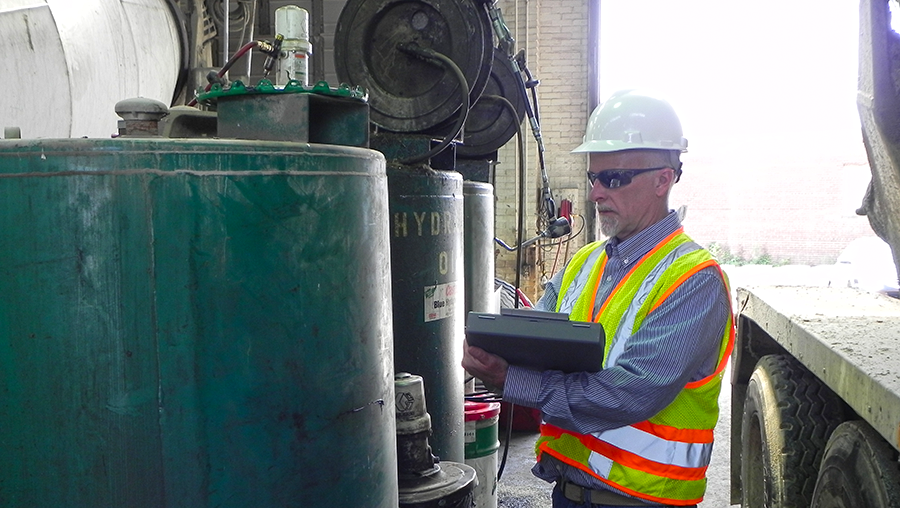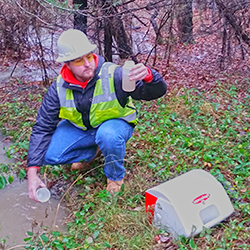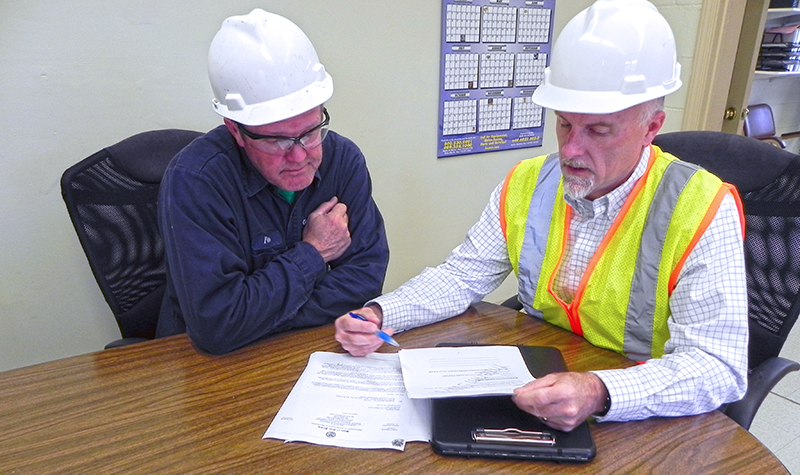We review the most common TRI Reporting mistakes and how to fix those issues.
It never fails, year after year. We start asking folks about TRI Reporting, and we start hearing similar things. While many folks claim to be reporting correctly, there's a fair amount of folks who admit things that clearly indicate they're not reporting correctly.
We've found two things are causing reporting issues for most people. First off, the information out there regarding TRI Reporting is shoddy at best. The confusing USEPA website isn't helping anyone out, most industrial groups aren't doing much to educate people, and consultants have a variety of views on the subject. In short, information is confusing at best. The second issue is simple; the USEPA isn't enforcing this regulation until the 11th hour, swooping in and hitting people with big fines. So, people don't know about the regulation and the USEPA isn't enforcing it very well.
Fortunately, we've been working with enough companies over the years and we've been able to identify early warning signs and offer some general guidance when it comes to avoiding the more common TRI Reporting mistakes.

The most common TRI Reporting Mistakes
Here are what we commonly see as the biggest mistakes when it comes to Toxic Release Inventory Reporting.
1 - Not doing TRI Reporting at all.
For every facility that either isn't paying attention to the regulations or are choosing to voluntarily ignore the conversation, there are even more facilities out there that aren't reporting because of simple confusion. A lot of folks aren't reporting because they think Tier II Reporting & TRI Reporting are the same thing.
Make sure you're reporting. Get an environmental audit, if necessary, to make sure you're in complete compliance. Not reporting carries HUGE liabilities.
2 - Reporting the same thing over and over again is a recipe for disaster.
Some facilities have been doing TRI reporting the same way, for the same chemicals and releases, for years without checking anything out.
That's not how TRI Reporting works.
Can you file the same tax return every year? No, of course not. TRI Reporting's the same principle.
Every year, you need to review your manufacturing process to look for changes that might change what’s reported. Different chemical formulations, new production processes, new products, whatever it might be, are all things that need to be reviewed in detail annually to see how they might affect – and change – the TRI reporting you do.
3 - You're not investigating enough.
If you're not digging deep enough, you could be digging your own grave.
Maybe you’ve only been reporting on one or two chemicals for the past couple of years, but you’re not digging deep into your current materials, processes, etc. to see what else might be present that requires reporting.
For example, we often see facilities correctly reporting the various materials every year, but they don't look into new manufacturing process or materials.
In short, they're not evaluating their situation fully.
4 - Don't be too dependent on your SDS.
Relying solely on your SDS as your source of chemical information can be a costly mistake. Most of the time, your SDS will provide a good source of chemical composition data, but they might not have everything you need.
SDS's are required to report the composition of any ingredient present greater than 1% of a mixture. But what about chemical components that might be present at lesser amounts? Might not be a problem, unless there are PBT (persistent bioaccumulative toxic chemicals) present in that material which haven’t been reported, in which case the 1% reporting threshold doesn’t apply. These PBT chemicals have to be reported, even if you don't know the percentage they make up.
5 - You're not factoring in releases.
If you’re not taking all possible release pathways into consideration you aren't fully meeting your TRI reporting requirements.
Remember, TRI stands for toxic release inventory, not just toxic chemical use inventory. So what are those releases to the environment? There are a total of 13 possible release pathways (some of which are “other”), so have you really looked carefully into all possible pathways?
For example, if you report process stack emissions, might you also have fugitive air emissions, or releases via stormwater runoff? Without a full and complete evaluation, your TRI reporting isn’t complete or accurate.
6 - TRI Reporting is not an isolated regulation.
There's a big issue starting to heavily impact industrial organizations. Lots of business are failing to recognize the interaction between TRI reporting and other regulations, including NPDES permit requirements. NPDES permits are what folks typically refer to as stormwater permits.
For example, if you are potentially releasing some toxic chemical via stormwater runoff, is it reflected in your NPDES permit? Have you discussed this with your regulatory agency? Are you acknowledging that you're releasing toxic chemicals via stormwater in your TRI Reports, but aren't testing for it & reporting it as you would stormwater results?
7 - You're acting like it's still the 1950s.
One of the primary reasons that TRI Reporting is done is to help the industry become aware of their use of toxic chemicals. Regulators and federal agencies wanted to see industry reduce use as well as releases of those toxic chemicals to the environment.
If you haven’t looked for ways to decrease your use of toxic chemicals or releases of toxic chemicals, you're crazy. While you won’t get penalized for not reducing your use or release of these chemicals, you’re missing a golden opportunity if you aren’t carefully evaluating your TRI report to see what kind of changes you ought to make.
8 - You're waiting for enforcement to catch you.
I see this a lot with people when I tell them about federally mandated programs. I hear a lot of facilities say things like “no one has ever bothered us about this”, or “how come our regulator hasn’t mentioned this before”, or the most typical of all “what’s this going to cost” or even worse "when am I going to get in trouble?"
Given the huge potential penalties involved (they can be in the millions of dollars) and the advent of public access to your data as well as 3rd party lawsuits, TRI reporting is not something to ignore. I see people routinely ignoring, or not putting enough resources into TRI Reporting, meaning they're not taking it seriously, and certainly not reporting correctly.

TRI Reporting mistakes can cost you big time.
These mistakes are easy to rectify. In all honesty, these mistakes are very easy to avoid provided you know what you're doing when it comes to TRI Reporting.
Just take reporting seriously. If you or your staff is in charge of reporting, make sure everything is being done correctly. Double check everything. If you're hiring an outside firm, make darn sure they're competent and knowledgeable on the subject. Fines for failing to conduct TRI Reporting, or reporting incorrectly, can literally break the bank.
You want to make sure everything is being conducted correctly, and on time.
To learn more about TRI Reporting, click here to contact us online or give us a call at 609-693-8301.





